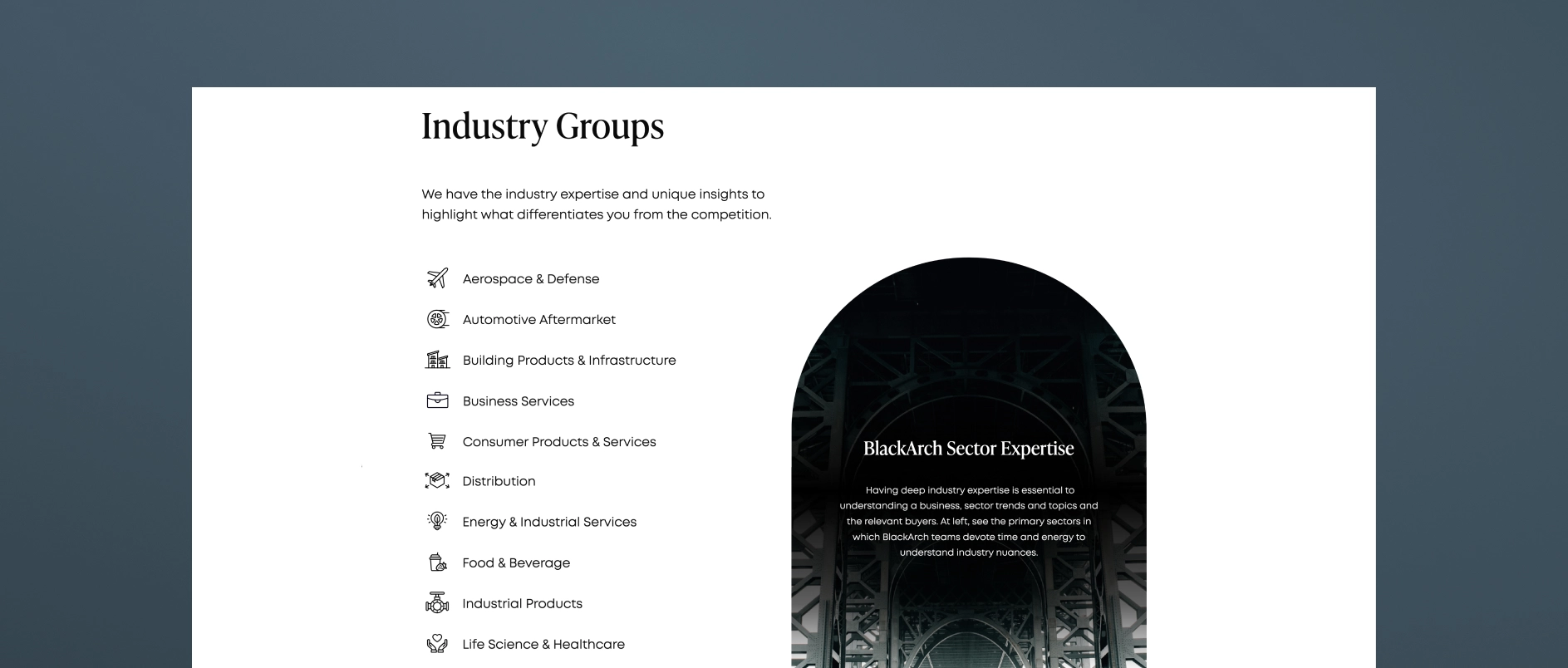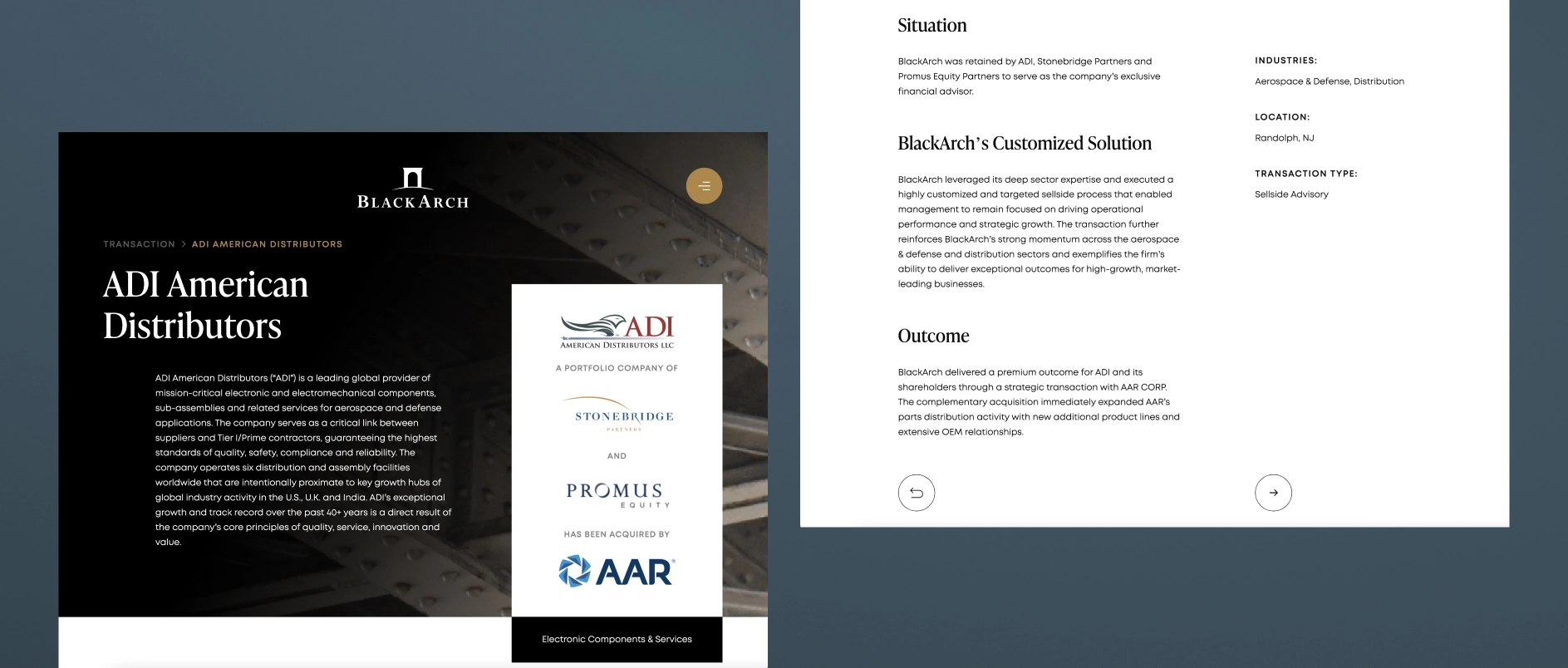.jpg)
Private Equity Sector Focus: How to Make It Visible, Credible, and Enduring

What Is Private Equity Sector Focus?
Private equity sector focus is the deliberate investment strategy in which a private equity firm concentrates its capital, expertise, and deal-making on specific industries or sub-industries. This focus is not simply an internal preference—it becomes a differentiating asset when visibly embedded into the firm’s brand, messaging, and investor communications. In a market where capital is abundant but executive attention is scarce, a sector focus that is both authentic and legible can significantly influence fundraising outcomes, deal flow, and talent acquisition.
Why Is Sector Focus Often Invisible to the Market?
Many private equity firms claim sector specialization, yet fail to make that focus apparent in their external materials. A firm may have a disciplined sourcing model, repeatable value-creation playbooks, and deep team alignment, but if its website reads “we build great businesses across industries,” its competitive edge disappears from view. The gap is not one of credibility, but of communication. When prospective investors, intermediaries, or executives cannot discern a firm’s sector expertise, they assume generalism—often to the firm’s disadvantage in competitive processes.
How Can Firms Signal Sector Focus Effectively?
Sector focus becomes credible when it is supported by consistent, tangible signals. First, sub-sector clarity helps position the firm precisely. Instead of stopping at broad categories like “business services” or “healthcare,” specify niche segments such as compliance outsourcing or outpatient specialty care. Second, use consistent language across all touchpoints—from pitch decks to website copy—so that sector positioning becomes part of the firm’s identity. Third, design choices should align with the industry’s visual language, avoiding mismatches that can dilute credibility. Finally, proof of repetition, such as detailed case studies, reinforces the perception of expertise.
Where Does Sector Focus Break Down?
The disconnect between strategy and messaging shows up in three high-impact areas:
- Fundraising: Investors seek clear differentiation from other firms they meet.
- Sourcing: Intermediaries want certainty that a firm invests in their deal’s industry.
- Talent: Candidates need to know whether they are joining a generalist platform or a specialized one.
When messaging fails to reflect the actual strategy, the market assumes inconsistency or lack of conviction—both of which can erode competitive position.
How Do You Translate Strategy into Brand Materials?
Firms do not need a wholesale rebrand to communicate sector focus effectively. Small but targeted adjustments can produce outsized results. In portfolio presentations, move beyond logo grids to concise summaries of each investment’s sector, rationale, and outcomes. Develop case studies or interviews that illustrate strategic alignment. Review homepage copy to ensure that the first lines clearly articulate the sectors served and the types of companies sought. These changes help audiences grasp the firm’s focus immediately.
Why Specificity Outperforms Broad Positioning
Some firms fear that defining their focus too narrowly will exclude opportunities. However, investment mandates already constrain deal scope, and being explicit about sector strengths increases perceived expertise. Consistency is especially important during market shifts. For example, energy-focused firms that rebranded in reaction to ESG sentiment and later reverted risked damaging their credibility. The firms that held steady through such cycles maintained trust, signaling resilience and conviction to their stakeholders.
Which Metrics Prove the Impact of Sector Focus?
While sector focus is often qualitative, certain indicators validate its effectiveness. These include:
- Higher conversion rates in targeted deal sourcing.
- Increased inbound opportunities from sector-relevant intermediaries.
- Stronger talent pipelines from industry-specialized executives.
- Faster due diligence cycles due to sector familiarity.
By tracking these metrics over time, firms can quantify the ROI of their specialization strategy.
Read More
Private equity sector focus is an investment strategy in which a firm concentrates its deal sourcing, portfolio management, and value-creation expertise in specific industries or sub-industries. This focus helps differentiate the firm, create operational efficiencies, and increase credibility with investors, intermediaries, and management teams.
Sector focus allows investors to quickly assess a firm’s expertise, reducing uncertainty in capital allocation decisions. Limited partners often prefer managers with a proven track record in targeted industries because it signals repeatable success and risk mitigation.
Design elements — from imagery to typography — should reflect the industries in which the firm operates. For example, a firm investing in industrial manufacturing might use visual cues that convey precision and durability, while a healthcare-focused firm might favor clean, clinical aesthetics.
While some fear that specificity may exclude opportunities, in practice, clearly defined focus areas help attract the right deals and avoid distractions. Investment mandates already constrain deal flow, so sector clarity enhances efficiency without meaningfully narrowing the pipeline.
Frequent shifts in positioning can erode trust with investors and partners. Firms that maintain a consistent message, even during industry headwinds, demonstrate conviction and long-term commitment, which strengthens market perception.
Adding descriptive context to portfolio companies, creating sector-aligned case studies, and ensuring homepage copy reflects targeted industries can quickly enhance clarity without a full rebrand. These actions make specialization tangible to all stakeholders.







